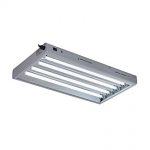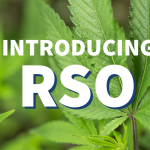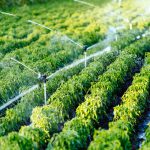How many time have you consumed edible weed products? When making cannabis edibles or merely cooking, it is no longer enough to use only cannabis-made butter. To fully enjoy the benefits of your weed, you should decarboxylate your weed. But why should you embrace this rather modern technique?
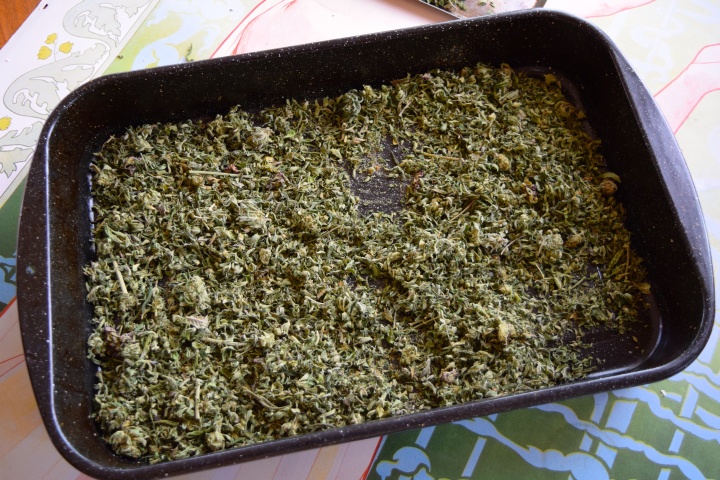
It may be surprising to new cannabis users, but marijuana in its raw form does not contain any potent psychoactive substances. You can blend a handful of cannabis flowers in a juicer and consume without necessarily feeling high. So, what happens for you to become high? Allow us to demystify decarboxylation, its importance, and how to do it.
Best Article About Marijuana Fact On 07- 2025
- How Long Does Nicotine Stay In Your System
- How to Clean a Bong
- How to Roll a Joint
- How Much Nicotine is in a Cigarette
- How to Quit Smoking Weed
- Benefits of Weed
- How to Pass a Drug Test
- Why Does My Vape Taste Burnt
- Indica vs Sativa
- Is Weed Legal In California
- Marijuana Affiliate Programs
- How to Make Pot Brownies
- How Many Grams Are In An Ounce Of Weed
- How to Make Cannabutter
- What Is Rick Simpson Oil
- How to Roll a Blunt
- How Long Does Marijuana Stay In Your System
What is Decarboxylation?
A simple way to describe decarboxylation is using heat to activate your cannabis plants, increasing their effects. It is what happens when you light or smoke a joint. With cannabis becoming socially acceptable both as a recreational and medical substance, the art of decarboxylation is gaining prominence all over the world.
The Science Behind the Process
But, what happens when you light flame on your marijuana buds?
Marijuana contains a chemical compound called tetrahydrocannabinolic acid (THCA) in the trichrome of the flower. The compound itself does not have any psychoactive qualities. However, when you expose the plant to fire, THCA is converted to active tetrahydrocannabinol (THC), by losing a carboxyl ring. It becomes decarboxylated, improving the psychoactive qualities of the weed.
At the same time, cannabidiol acid (CBDA) should as well convert it to (CBD) for it to become active. There have been talks on the usefulness of CBDA in numerous platforms. Most cannabis users claim it does not have any benefit at all. However, research shows that active CBD has plenty of medicinal use to marijuana users all around the world. Even though it is not intoxicating, it helps by reducing anxiety, relief, and treating insomnia.
Decarboxylation can happen in two primary stages. One, during the drying stage of the flower and when you expose the plant to heat. The best way to decarboxylate your marijuana is by burning the weed when smoking or vaping. The process is very intensive and has tremendous results. But what do you do if you want to cook your marijuana or make tinctures and oil extracts? To decarboxylate the weed for edibles and extractions, you need to activate it on your own before any consumption. Here are ways you can decarboxylate your cannabis when cooking.
Some Best Decarboxylator Products On Amazon:
[amazon bestseller=”Decarboxylator”]Decarboxylating Cannabis for cooking
When you burn cannabis, the inactive THCA and CBDA compounds will transform to their active counterparts. However, you cannot burn the weed you intend to use in an edible, tincture, or oil. Here are some of the methods you can employ too decarb your weed.
Using an Oven
The most comfortable and most convenient way to decarboxylate your dry and cured weed is to use an oven. Before you can begin the process, you first need to identify yourself with terpene. They are the oils in a cannabis plant that give the weed its flavor and smell profile. A cannabis plant may contain a variety of terpene combinations that result in the sweet, sour, spicy, and bitter tastes that can help you identify different strains. However, these terpenes are affected by the temperature that goes above 310 degrees Fahrenheit. They begin to break down, making it hard to identify the weed you are consuming. Therefore, when you expose your weed to the oven heat, you should ensure that the temperatures you use do not go above 310 degrees.
The decarboxylation process begins at around 220 degrees Fahrenheit. To get the best out results when using your oven, you should pre-heat it to about 220 -245 degrees. The baking time should be between 30 to 45 minutes, depending on your cannabis and your preference. When you are not cautious about the amount of heat and exposure time, you may inadvertently cause the degradation of some terpenes and cannabinoids. Since ovens are known to fluctuate temperature by 20 degrees or more, you should therefore always keep a close eye. Having an oven thermometer can save you a lot of trouble. You only need a baking tray, parchment paper, and some time on your hands to decarboxylate some weed. It is recommended that line the baking tray with the parchment paper and spread your finely ground cannabis before placing it in the oven. You can also opt to use a mason jar over a baking sheet to aid in the decarb process. A mason jar carries some advantages over a baking sheet. First, a mason jar can hold the strong odors from the cannabis preventing the oven from smelling.
Additionally, all the terpenes that evaporate during the decarboxylating process will stick onto the glass jar allowing you a chance to preserve them when you use the jar for infusion. Since marijuana is in an enclosed space, it does not have direct contact with the air in the oven. Therefore, your plants will not burn when you introduce heat in the oven. You can still use this method when you want to activate the Kief. However, the time would have to reduce to about half that of the flower.
Once the decarboxylated wee appears to be dry and is brown, you should first allow it to cool down before you pulse it within a food grinder. You can, therefore, start thinking about which component to use to bind the decarboxylated cannabis. Should you use fats, certain oils, or alcohol?
[amazon box=”B073DBNT31″ grid=”1″]The Ardent Nova is a machine with a singular purpose: decarbing weed. It’s a set-and-forget style system, meaning you can load it up, start it, and walk away. While you’re gone, the Ardent Nova will slowly and thoroughly decarb your weed and stop applying heat as soon as it senses the job is done. No need for an oven because it plugs directly into the wall. Plus it makes almost no smell whatsoever; I had to put my nose right up to it to smell anything.
The Boiler Method
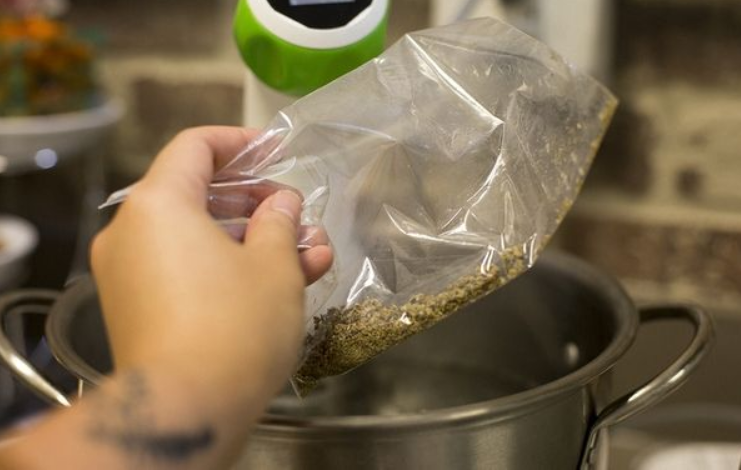
Highly experienced chefs prefer using the boiler method to activate their weed. This process involves placing cannabis in a vacuum-sealed boiling bag, then submerging it into boiling water for close to 90 minutes. Just like the oven method, you need to be very cautious about the temperature of the water throughout the process. You should try to maintain it at around 212 degrees Fahrenheit. You can as well use the same method when dealing with a hot oil bath. However, there will be a temperature difference since, for the oil bath to work, you should ensure that the temperature remains at 250 degrees without any bubbles setting off.
Using A Microwave
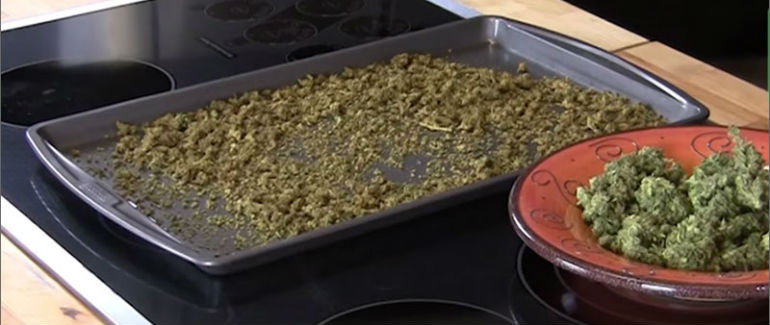
Some cannabis users use the microwave as a source of heat for decarb their marijuana. However, the practice is not preferred since the weather may quickly degrade your plant’s terpenes and cannabinoids. Looking at the bright side, using a microwave is faster than most methods. Even with the claim of causing damage to the terpenes, the smell you get after every decarb may be convincing enough that most of the desired chemicals are still intact. To successfully decarb using a microwave, you should first cut down your marijuana in small chucks utilizing a pair of scissors or a grinder. Then, spread the buds evenly across a plate that can fit in your microwave. Set the timer for three minutes and wait for it to work. Halfway through, you can flip the buds to improve their reach by heat. When you finish, your weed will be ready for cooking or using in making oils.
[amazon bestseller=”microwave” items=”1″]Decarboxylation by Sous Vide
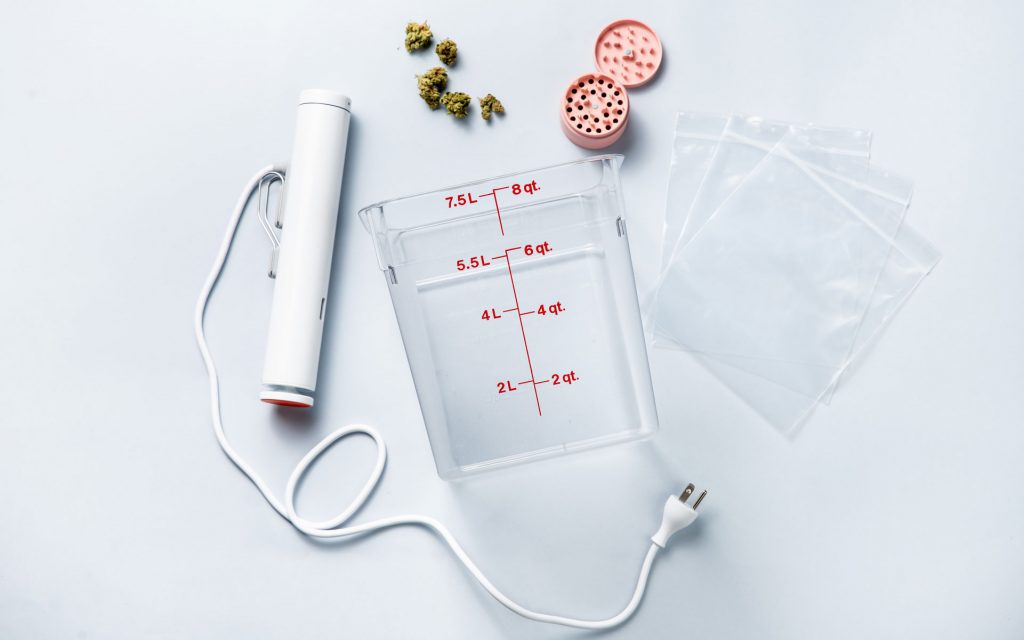
The method of Sous Vide was introduced by a British physicist called Sir Benjamin Thompson. He came about it as he was trying to figure out how to evenly cook a mutton shoulder. When you compare it to all the other methods, it is the most fool-proof process. The investment you have to make to acquire the equipment needed is high but favorable for cannabis users that cook with weed regularly. You need to purchase three items to complete the process. You need an immersion circulator, a large container or pot, and a vacuum sealer.
First, you need to fill up the container with hot water and place an immersion circulator inside, having set it at 203 degrees Fahrenheit. The most significant benefit of using the immersion circulator is that you will not have to worry about overheating the cannabis and destroying any terpenes or flavor. The temperature set is precise. All you have to do is grind your cannabis into small fine pieces and place it in a zip-tight plastic bag without any air pockets. Then, put the bag carefully into the water bath for 90 minutes. Once the time is over, you can allow it to rest at room temperature for about 15 to 20 minutes. You can then use cannabis in your cooking ventures.
List Of Tools:
Immersion circulator:
[amazon bestseller=”Immersion circulator” items=”1″]Container for immersion circulator:
[amazon bestseller=”large container” items=”1″]Vacuum sealer:
[amazon bestseller=”best vacuum sealer” items=”1″]Natural Method
Natural decarboxylation is when plants take their own time to turn THCA to THC. The method is not viable when you want to make your own cannabis edible since you have to wait for a long time. You will most definitely require to use heat if you’re going to speed up the process.
Temperature and Time
High temperature leads to an increase in speed in the rate of cannabis decarboxylation. Even so, bidding your time also carries various benefits. If you want to maintain the distinct flavors and pungent that every cannabis strain carries, you will make sure to use methods of decarboxylation that does not affect the terpenes negatively in any way.
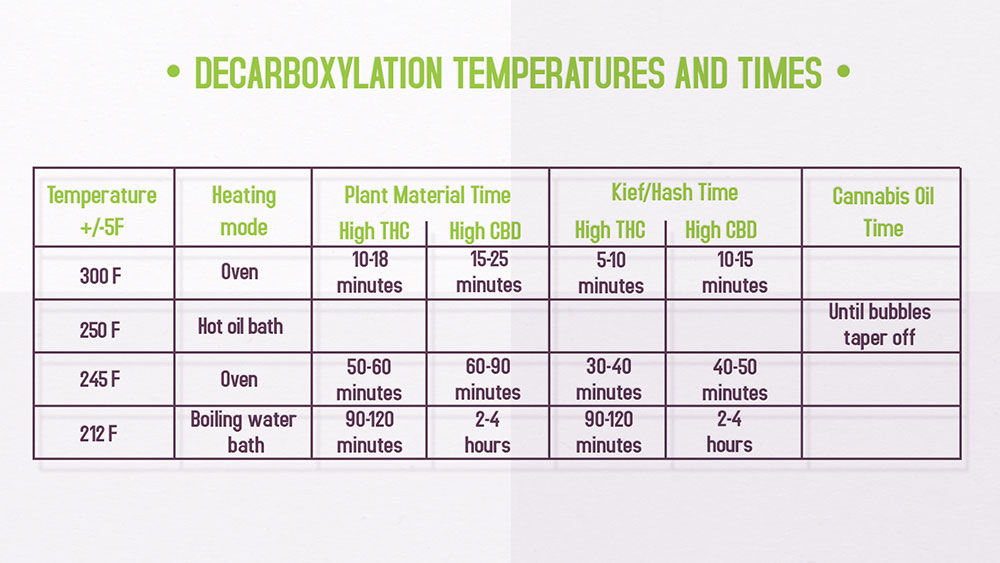
The time it takes to decarb is different among various weed strains. Cannabis that contain higher levels of CBD tends to take a shorter time than those abundant in THC. When using the oven, if you want to decarb cannabis with high levels of THC, you need to bake it for 10 to 18 minutes while at a temperature of 300 degrees Fahrenheit. If you want to cook cannabis with high CBD levels, let it stay in the oven for 15 to 25 minutes when the temperature is 300 degrees Fahrenheit. When using a water bath, it can take 90 to 120 minutes for high THC plants while for high CBD plants, it can take 2 to 4 hours. Finally, for an oil bath, you need to observe it until bubbles stop forming.
How Long Should Decarboxylation last?
The time it takes to complete decarboxylation is dependent on the method you use and the materials you are using. Usually, decarboxylation of the flower can take 30 to 45 minutes in the oven. The kief and hash oil would only consume 20 minutes. Sous vide is the most efficient method but wastes the most time, about 90 minutes. The microwave, on the other hand, takes the shortest time of only a few minutes.
What happens if you do not Decarboxylate?
The primary purpose behind the decarb of marijuana is to activate its psychotropic effects. When you consume marijuana whose psychoactive effects are not yet activated, you will only get to enjoy the health benefits of the plant without experiencing any high. However, this benefit only comes along if you consume raw cannabis. Such include anti-inflammatory properties. If you want your marijuana edibles to be potent, you should never skip the decarboxylation process when preparing them.
When should you decarb weed?
Apart from merely making edibles, other reasons can push you to decarb your marijuana.
Such include;
- When making infused oils, meals, and drinks.
- When making full-extract extractions at home.
- When preparing tinctures.
Should You Smoke Decarboxylated Weed?
There is no reason for you to decarboxylate cannabis before smoking it. When you smoke it, it decarbs with the heat. However, some users claim that it increases the potency of the smoke. If you intend to do it, do not decarb using the oven since the weed will become too dry, making the smoke harsh to bear. You can, however, try using Sous Vide or microwave for a quick decarb.
Summing up
The main reason people do not consume dry cannabis buds is that it will not give then a high feeling unless you heat them. Decarboxylation is a crucial step to activating the potent psychotropic ability of weed. It is only in trace amounts in fresh plants; hence, you may not experience anything when you consume it raw. If you want to improve your culinary delights by adding marijuana to the ingredient list, then this guide will help you know what to do and when to do it.



